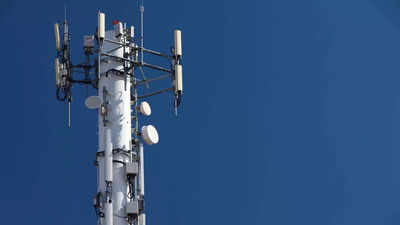
New Delhi: Silent bidding by telecom giants likely 5G Spectrum Auction Industry sources said in July, they are concerned about a loss of around 40% in potential revenue due to the allocation of some airwaves to enterprises for private networks.
Top players Reliance Industries’ Jio and rivals Bharti Airtel and Vodafone Idea have failed to lobby New Delhi to stop the allocation, which would let various enterprises including Amazon.com and Tata Consultancy Services get airwaves without auction.
SP Kochhar, Director General, Cellular Operators Association of India said, “Telecom companies are very upset, there will be an estimated 40% potential 5G revenue loss.”
Kochhar said he was relying on demand from the enterprise to justify the billion-dollar investment as price-conscious retail consumers would slow to move.
“It’s a big disappointment.”
Five other telecommunications industry executives told Reuters the rise of private 5G networks has undermined the business case for telcos, which are now likely to bid silently at auctions.
Reliance, Airtel and Vodafone did not respond to emails from Reuters requesting comments.
However, the government has said that allowing private networks, such as those in South Korea and Germany, would encourage the innovation of automation and other technologies in places such as factories or ports, without worrying about bandwidth or latency issues.
The Broadband India Forum (BIF), which represents tech firms such as Tata Consultancy and Amazon.com, has said that private 5G networks will accelerate digital transformation.
Research group Omdia said this month that the launch of 5G services in the world’s second-largest mobile market after China is a “watershed moment” for the country and the global 5G market.
Omdia in its report said that around 50% of enterprises want to start using 5G within 12 months and there is demand from private network suppliers.
Analysts at IIFL Securities of India flagged “vulnerability risk to 5G-connected telcos from enterprises”.
Telecom companies have already complained of a “very high” base in the prices of 5G spectrum, which is seen as one of the highest in the world.
IIFL said now with private networks expected to drive demand, the telecom giants are likely to bid for only four of the 10 bands on an estimated $9 billion offer.
According to industry group GSMA, the total spectrum cost in India is 32 per cent to the annual recurring revenue ratio of telcos, which is the highest in the world.
The bleak outlook comes as Airtel and Vodafone reel from the price war started by Reliance in 2016.
Airtel and Vodafone have reported losses in recent years, also squeezed out of spectrum dues to the government, though recent hikes in mobile data prices have gradually started helping at least the former turn profits. Is.
The potential loss to telcos is a boon for companies planning to launch private 5G network services. Globally, more than two dozen countries have led the way in such networks.
India has said there will be no entry or license fee for a 10-year license for private networks that can be created by firms with net assets of more than $1.13 million.
They have to pay an application fee of Rs 50,000. It is not clear whether there will be any other charges.
The spectrum will be assigned after “demand study” and regulatory clearances.
The government aims to begin the rollout of 5G – which can provide much faster data speeds than 4G – by spring 2023.
A public telecommunications network adapts to the needs of the public, but the changing demands of an enterprise “can only be achieved through a dedicated captive private 5G network”, the BIF stated.
“Private 5G networks offer India a great opportunity to keep pace with the world,” BIF said in a statement in June.
FacebookTwitterinstagramKu APPyoutube